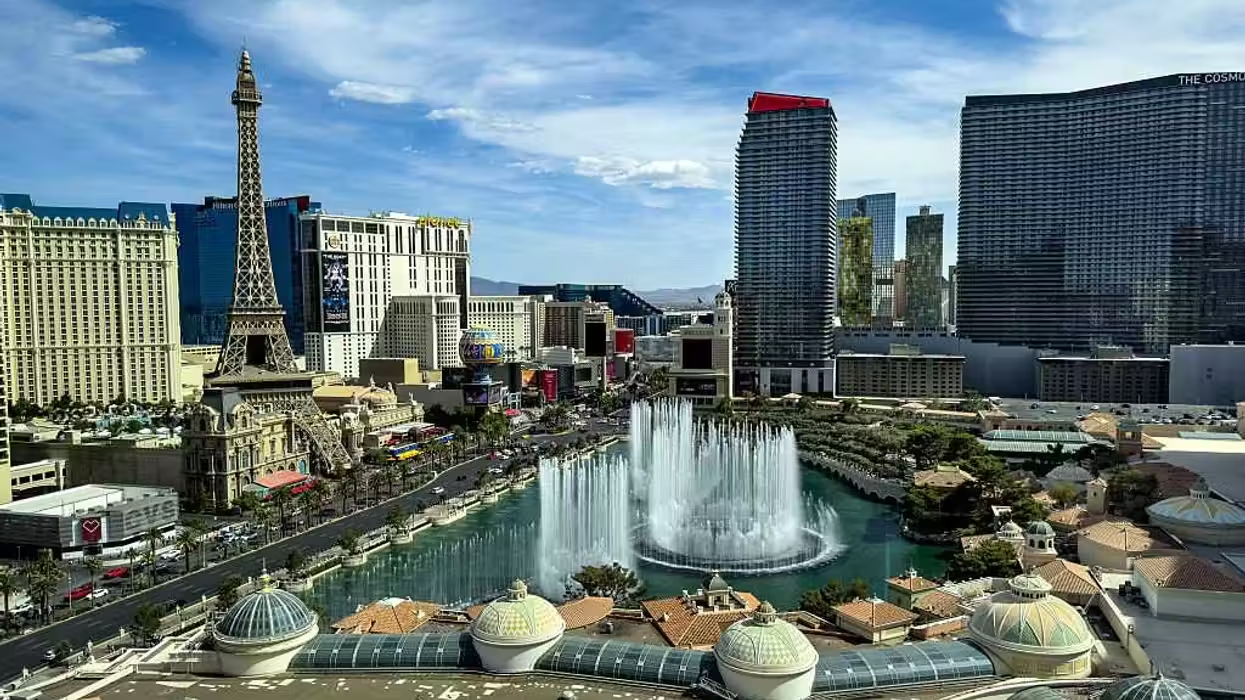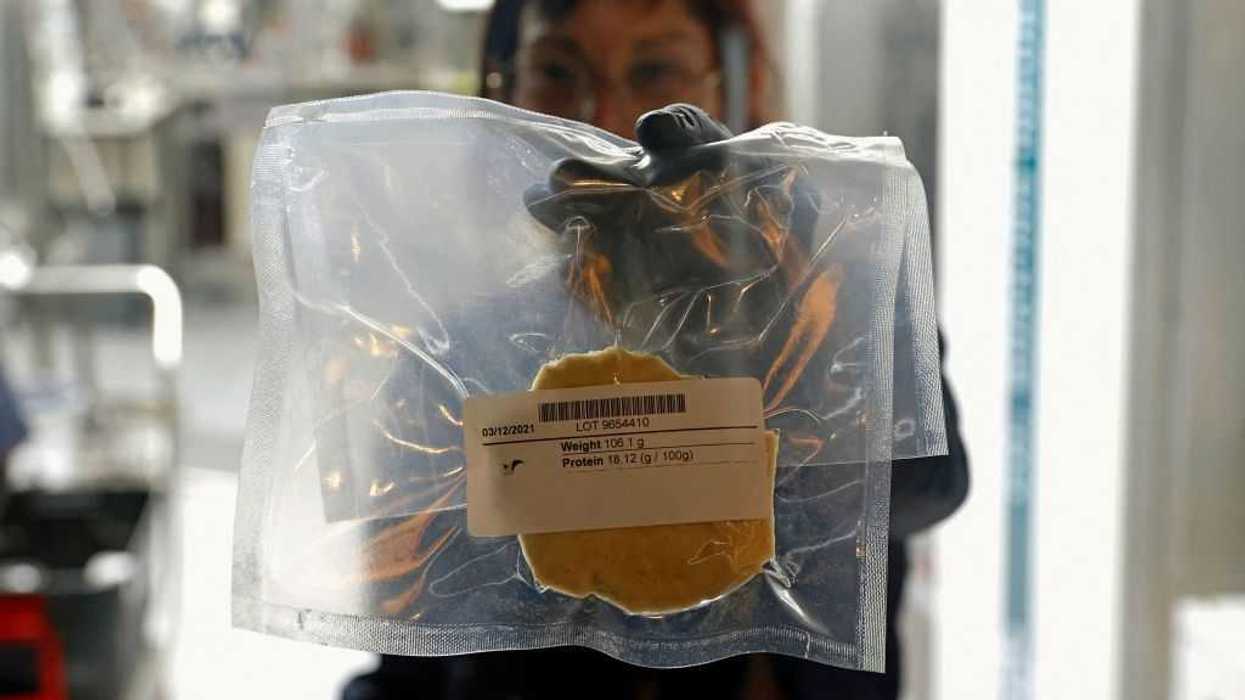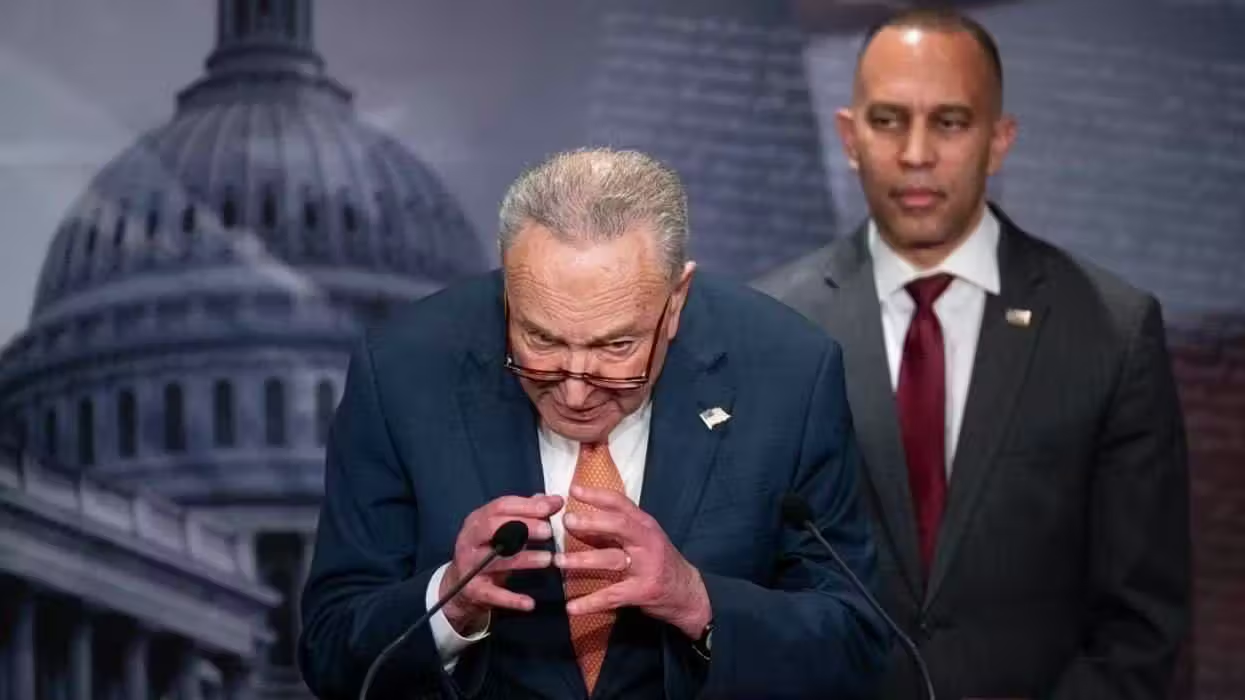A North Korea expert says that former President Barack Obama was "flat out wrong" when he said that the United States applied all the sanctions it possibly could on North Korea.
Bruce Klingner, senior research fellow for Northeast Asia at Heritage Foundation, a conservative think tank in Washington, D.C., told TheBlaze on Friday that the Obama administration was "pulling their punches" when it came to dealing with North Korea.
The statement came on the same day that President Donald Trump met with South Korean President Moon Jae-in for the second day in a row. It was Jae-in's first visit to the U.S. since becoming South Korea's leader in May. During a White House state dinner on Thursday night and subsequent White House meeting on Friday, the two talked about North Korea's nuclear missile capabilities and China's potential leverage in persuading Kim Jong Un to denuclearize his country. Trump also addressed what he sees a trade imbalance between the U.S. and South Korea.
Klingner specifically addressed talks about Kim Jong Un, saying that when it comes to his nuclear weapons, "we're in it for the long haul." Klingner faulted the previous administration for its "strategic patience" policy toward North Korea, instead of imposing more sanctions.
"Some people have said, 'Well, sanctions don't work. Let's try something new. Let's try diplomacy,'" Klingner told TheBlaze.
The North Korea expert called that assertion "an error on a number of different parts." Klingner pointed out that since 1985, there have been eight international nuclear arms agreements involving the U.S. and North Korea. Four of those agreements aimed to prevent North Korea from obtaining nuclear weapons in the first place. When those didn't work, another four agreements tried to get the country to give up the weapons.
"That also failed," Klingner said.
In addition to these multiple agreements, none of which North Korea has upheld, Klingner said that "South Korea has had 240 agreements with North Korea, obviously not all nuclear, designed to induce political and economic reform and moderate behavior."
As Klingner pointed out, all of these well-intentioned efforts failed to meet their respective goals.
The Heritage Foundation expert then stressed that when it comes to sanctions, "there's still much we can do."
"[T]here is a misperception by many that we've maxed out, including President Obama when he said that North Korea was the most heavily sanctioned, most cut-off nation on Earth," Klingner said.
But, Klingner added, Obama was just "flat out wrong" in saying that. Klingner isn't the only one saying that, though.
According to Politico's Peter Harrell, "North Korea's economy is not as isolated from the global economy as most Americans believe":
North Korea is heavily integrated with the Chinese economy, and North Korea also trades with India, Pakistan, Russia, Angola, Saudi Arabia and other countries. Korean trade with China alone likely amounted to more than $5.8 billion in 2016 after rising by a factor of more than 10 since 2000. In total, North Korea’s exports and imports were nearly one-third of North Korea’s gross domestic product in 2015 — a higher trade dependence than Iran had in 2010, when the U.S. and our international allies finally got serious about imposing sanctions on Tehran.
Harrell continued:
Furthermore, the narrative that North Korea is on the verge of economic collapse is incorrect. Estimates of North Korea’s GDP generally run at least $30 billion a year. North Korean per capita income rose more than 15 percent between 2013 and 2015. Travelers to North Korea report anecdotal signs of growth, including a construction boom and new traffic in Pyongyang. Much like Iran’s supreme leader in 2009, Kim Jong Un today has little reason to worry his country is facing insolvency.
All of this supports Klingner's point that the U.S. has imposed sanctions on Iran that it has not imposed on North Korea, thus debunking Obama's claim that North Korea was the most heavily sanctioned country on Earth.
"We can debate why, but the fact is they were pulling their punches," Klingner told TheBlaze. "Whatever his [Obama's] reasoning, he didn't want to anger China. He didn't want to anger North Korea. He wanted to kick the can down the road. He drew red lines and didn't fulfill them.
"Whatever the reasons are, it was not fully enforcing U.S. law," Klingner said.
But the Trump administration doesn't appear willing to "pull punches" as the previous administration did, according to Klingner.
Last week, the Trump administration imposed economic sanctions on the Bank of Dandong, a Chinese firm that the U.S. says has North Korea ties.
"The Department of the Treasury is committed to protecting the U.S. financial system from North Korean abuse and maximizing pressure on the government of North Korea until it abandons its nuclear and ballistic missile programs,” U.S. Treasury Secretary Steven Mnuchin said, the New York Times reported.
“While we will continue to seek international cooperation on North Korea, the United States is sending an emphatic message across the globe that we will not hesitate to take action against persons, companies and financial institutions who enable this regime," Mnuchin said.
The "international cooperation" to which Mnuchin was likely referring involves Chinese President Xi Jinping applying more pressure of its own on North Korea. Trump has made it clear that he thinks the key to convincing North Korea to get rid of its nuclear weapons is to leverage the enormous economic benefits that some Chinese individuals and Chinese businesses provide to North Korea.
But the effort to persuade China to flex more muscle when it comes to North Korea has so far fallen flat, according to Trump himself.
"While I greatly appreciate the efforts of President Xi & China to help with North Korea, it has not worked out. At least I know China tried!" Trump tweeted late last month.
Despite this setback for the Trump administration, U.S. officials appear willing to exhaust all other options, including more sanctions. Klingner told TheBlaze that there are "numerous Chinese entities" that are in violation of U.S. law for their links to North Korea.
Anthony Ruggiero, former official in the U.S. Treasury Office of Terrorist Financing and Financial Crimes, echoed Klingner's comment.
“This is the tip of the iceberg. We know there are more Chinese banks that are either wittingly or unwittingly assisting North Korea," Ruggiero told the New York Times. He suggested that the Trump administration could be considering sanctions on more Chinese banks with North Korea ties.
The potential for more U.S. sanctions against North Korea comes just weeks after North Korean officials released American college student Otto Warmbier in a coma. Warmbier was detained by North Korean officials in January 2016 after allegedly stealing a government propaganda poster.
Warmbier died days after returning to the U.S., once again highlighting the U.S.' challenges when it comes to dealing with North Korea.
Trump took to Twitter following Warmbier's death to condemn North Korea for its "brutality."
"The U.S. once again condemns the brutality of the North Korean regime as we mourn its latest victim," Trump tweeted on June 20.
The president followed that statement up with an Instagram post, in which he called what happened to Warmbier a "disgrace"
"It's a total disgrace what happened to Otto (Warmbier.) That should never, ever be allowed to happen....." Trump's Instagram post read.
There are currently three more Americans who are being held by North Korea: a Korean-American college accounting professor Kim Sang Duk, businessman Kim Dong Chul, who was born in North Korea but is now a naturalized U.S. citizen, and Kim Hak-Song, who is also an American college professor.







